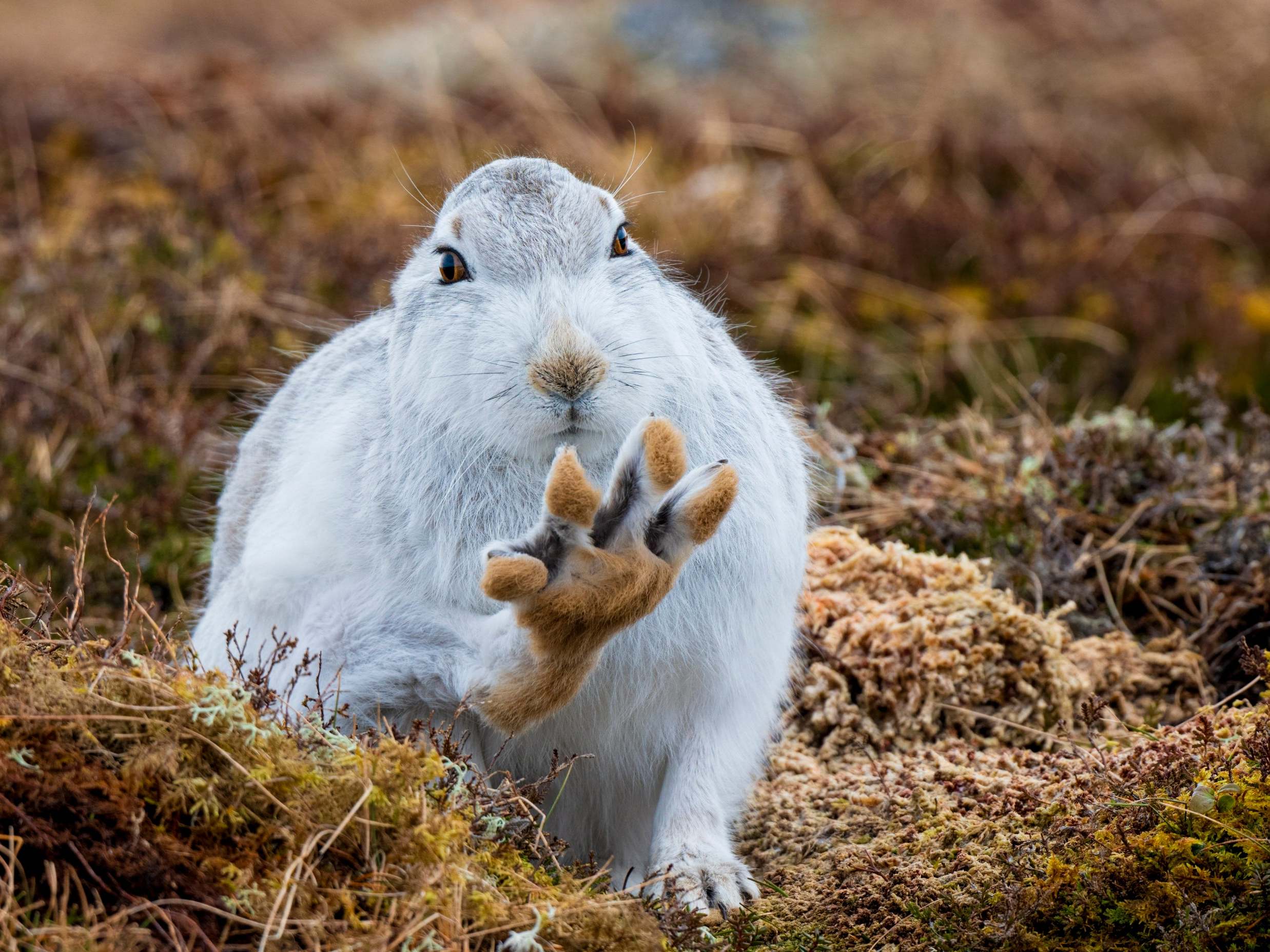Mountain hares can now only be killed in Scotland with a licence
Roughly 26,000 mountain hares currently killed on grouse shooting estates every year

Your support helps us to tell the story
From reproductive rights to climate change to Big Tech, The Independent is on the ground when the story is developing. Whether it's investigating the financials of Elon Musk's pro-Trump PAC or producing our latest documentary, 'The A Word', which shines a light on the American women fighting for reproductive rights, we know how important it is to parse out the facts from the messaging.
At such a critical moment in US history, we need reporters on the ground. Your donation allows us to keep sending journalists to speak to both sides of the story.
The Independent is trusted by Americans across the entire political spectrum. And unlike many other quality news outlets, we choose not to lock Americans out of our reporting and analysis with paywalls. We believe quality journalism should be available to everyone, paid for by those who can afford it.
Your support makes all the difference.The Scottish government has granted mountain hares special protections to stop mass culling of the mammals, a move that has received both praise and criticism.
On Wednesday night, the Scottish parliament voted to pass an amendment from the Scottish Green Party, which makes it an offence to intentionally or recklessly kill or injure mountain hares without a licence.
Alison Johnstone, a Green MSP who campaigned to prevent the mass culling of hares on areas of moorland in Scotland said she was “delighted” by the decision.
“The sheer volume of interventions from those defending our wildlife was impossible to ignore, and saw off the pressure from the grouse-shooting lobby, who once again attempted to undermine the evidence by claiming that killing these animals also protects them,” she said in a statement.
Bob Elliot, director of wildlife charity OneKind, said: “This is a triumph for one of the Scottish Parliament’s hare champions, Alison Johnstone, and also underlines the willingness of a Minister to listen to public opinion on the status of this cherished species. As soon as it became possible for Alison to lodge her amendment, the upsurge in public support has been momentous.
“Different reasons given by the grouse shooting industry for the supposed need to control mountain hares, such as the prevention of looping ill, a disease carried by ticks, have been successively discounted and animal welfare has taken precedence.”
Figures from the Scottish Government show 26,000 mountain hares are killed on average every year on grouse shooting estates, said Revive, a coalition for grouse moor reform. Last year, the conservation status for hares was downgraded to ‘unfavourable’ due to declining numbers.
Max Wiszniewski, campaign manager for Revive, said: “Iconic mountain hares are in decline and only legal protection will prevent their numbers falling. Today common sense has prevailed and the Scottish Parliament has voted overwhelmingly to pass this amendment.
“There is a circle of destruction that surrounds grouse moors and this includes the mass killing of this iconic mountain hare. The intensive management of grouse moors in Scotland, it would seem, stops at nothing to maintain the land for a single species no matter what the impact that has on wider ecology.”
However, the decision drew criticism from the Scottish Gamekeepers Association, which defends the interests of gamekeepers, wildlife managers and rangers in the country.
Alex Hogg, chairman of the association, said the decision was a “grave mistake” and “a bad law”.
“There will be no satisfaction in turning around in a few years and saying: ‘We told you so’, but certainly, this is an important date in the demise of another iconic species, killed by political trade-offs and emotive campaigns.
“The views of the rural working people of the land have been ignored, here. The system has failed them. We have been in discussions for some months about a party for rural Scotland and the possibility of fielding candidates in list seats.
“Our members feel this whole process and the lack of scrutiny has been lamentable and we now need to consider all options to ensure the working countryside is represented better in Scotland today,” he added.
Join our commenting forum
Join thought-provoking conversations, follow other Independent readers and see their replies
Comments